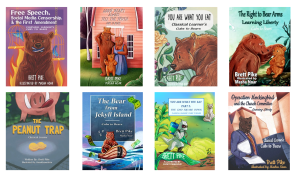It’s hard to believe that just 150 years ago, education looked very different in our country (and the rest of the world.) The rise of the Prussian model of education presented many complications, as it is not normal or natural for children to be in a room with 20 students the same age every day. One such complication we are seeing as a result is the rise of “peer orientation.”
From Google: Peer orientation refers to the tendency of children and youth to look to their peers for direction: for their sense of right and wrong, codes of conduct, and their very identity. In short, children stop looking to adults for cues of how to respond to situations, where they get their advice and who they bond with. The child no longer prefers his family, but rather his peers. He wants to be with his friends close in age and wants to be like them as much as possible. This produces “group think.”
What can we expect when children spend excessive amounts of time away from their families? If the child spends 40+ hours a week in school, at least an hour a day on the bus, and spends their evenings at extra-curricular activities, which voice do you think will be loudest in his head? This study examined the results of time spent with children and concluded that the more time parents spend with their children, the higher the child’s overall well-being will be.
Homeschooling virtually eliminates the peer orientation effect. When children spend their days learning about the real world by doing life alongside their own parents, and spending the appropriate amount of time with their friends, children are happier, mental health is strengthened, and even their academic performance is higher.
Brett Pike is the Author of the Cubs to Bears book series.
 He is also the creator of Classical Learner’s Homeschools Connected community & curriculum – bringing together thousands of like minded people and providing them the resources to give their kids an education worthy of freedom. You can learn more about Homeschools Connected here.
He is also the creator of Classical Learner’s Homeschools Connected community & curriculum – bringing together thousands of like minded people and providing them the resources to give their kids an education worthy of freedom. You can learn more about Homeschools Connected here.
